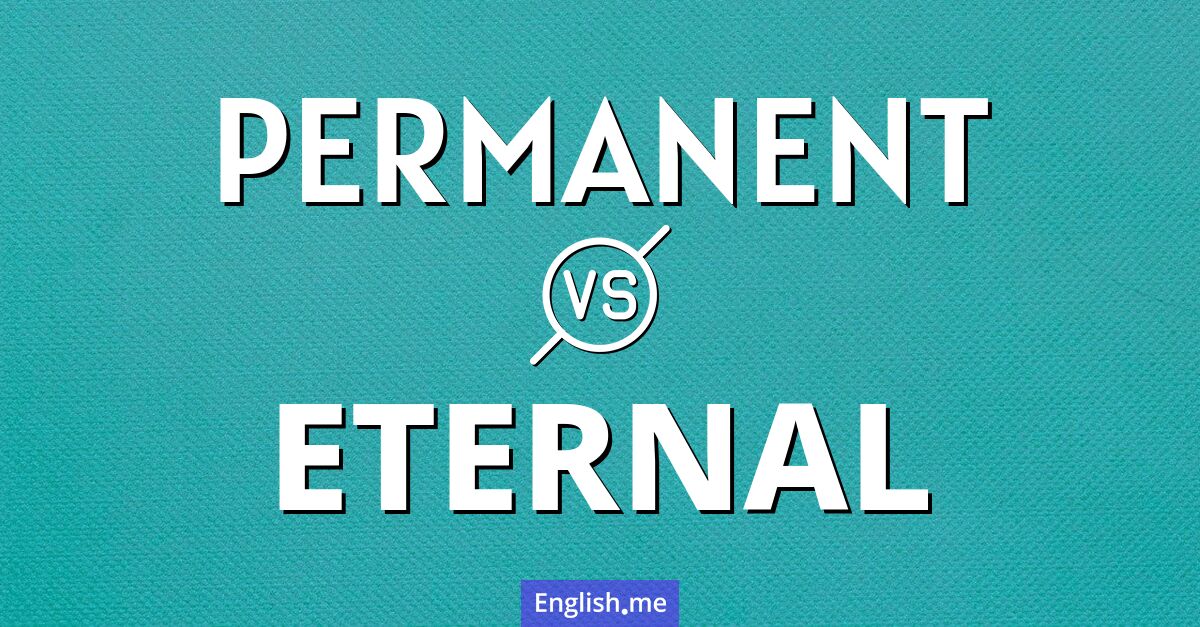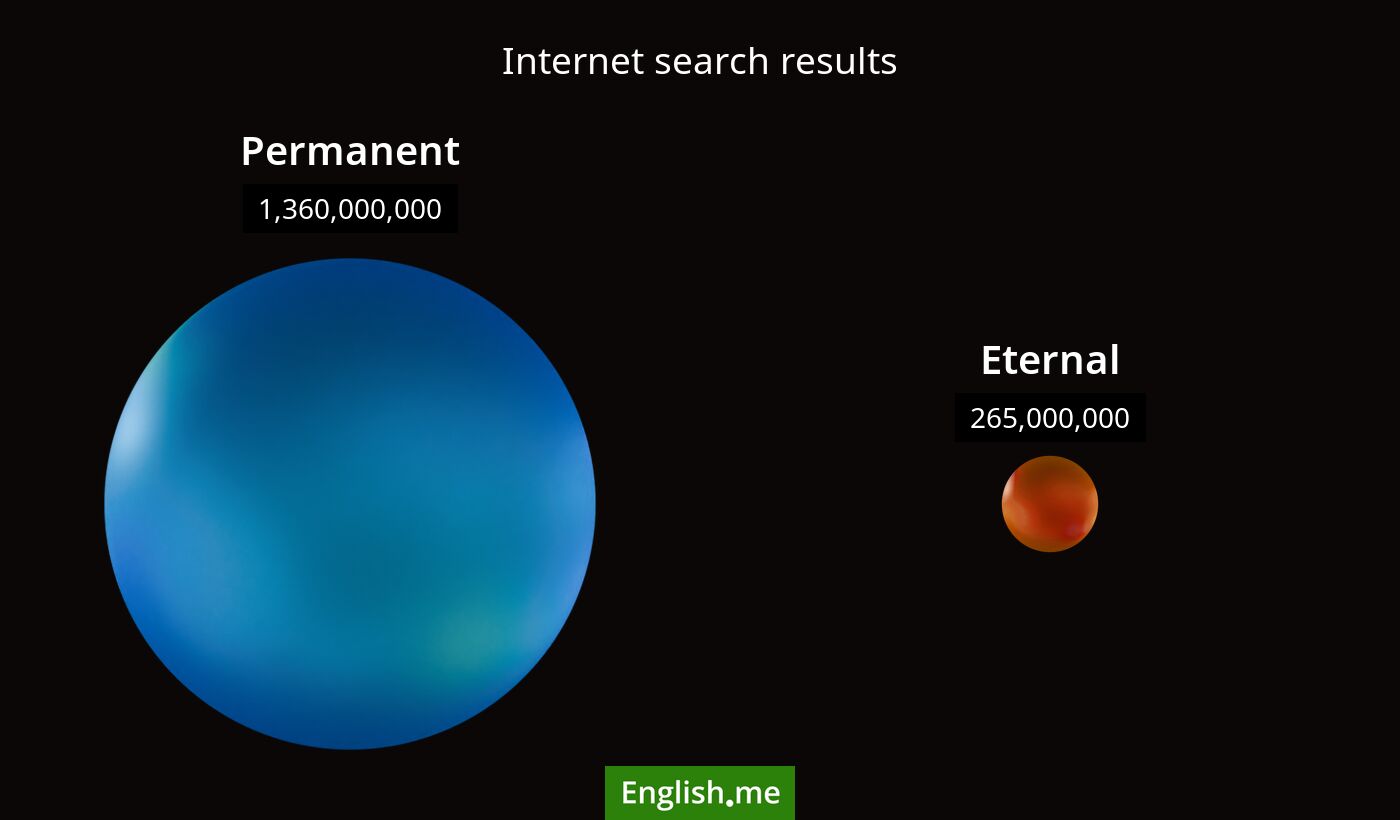"Permanent" vs. "eternal": a linguistic exploration of time's boundaries
Reviewed and edited by  Anwar Kareem 08/10/2024, 04:31
Anwar Kareem 08/10/2024, 04:31
English.me team member

 What is similar?
What is similar?
Both "permanent" and "eternal" refer to concepts of lasting duration. They are often used to describe things that are meant to endure and not change over time.
 What is different?
What is different?
"Permanent" typically refers to something that is meant to last indefinitely or for a very long time but can have an end. "Eternal", on the other hand, implies a state of being without beginning or end, often used in philosophical or religious contexts to denote timelessness.
 Which one is more common?
Which one is more common?

 Examples of usage
Examples of usage
Permanent- The marker left a permanent stain on the table.
- She received a permanent position at the company.
- The ancient philosophers pondered the concept of eternal truth.
- He believed in an eternal life after death.

 English
English español
español française
française italiano
italiano deutsche
deutsche 日本語
日本語 polski
polski česky
česky svenska
svenska Türkçe
Türkçe Nederlands
Nederlands